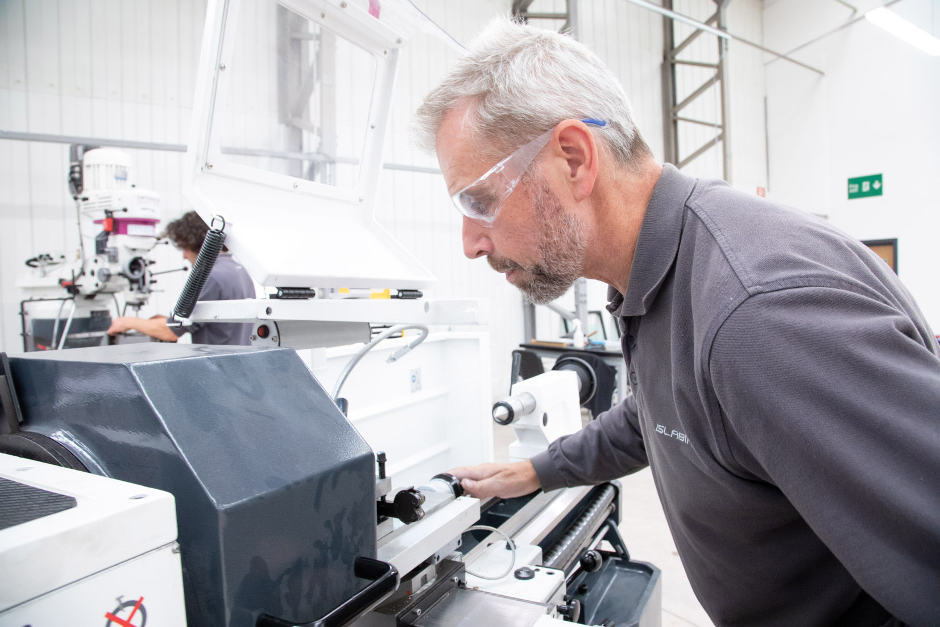
Islabikes, founded in 2006 to give children a better experience of cycling, will use the training centre’s technology and prototyping service to realise its ‘Imagine Project’, which will see bicycles rented to the user, then when they are finished returned, refurbished and rented to another rider.
This will involve the Ludlow-based company developing its own in-house manufacturing capability, bringing initial-stage production back from South East Asia and giving existing staff the chance to gain new skills.
Matt Baynham, implementation manager at Islabikes, said: “As a relatively small business, it is fantastic that we are able to use the MCMT’s Engineering Club to gain knowledge that will inform how we develop our manufacturing processes in the future.
“This is a great resource for SMEs and mean we simply pay a fee to use the equipment and work with its design specialist Adrian Howell on exploring tooling and fixtures that will help us build parts for our new bikes.”
“So far our engineers have used millers and lathes, CNCs to machine small parts and we will shortly be using 3D printers to help with prototyping,” he added. “We are getting to understand different equipment and what technology we might need to invest in to help us establish our own manufacturing process. If we didn’t have this resource it could take us years to build up this knowledge and we could spend a lot of money on the wrong tools and machinery.”
The Marches Centre of Manufacturing & Technology is the vision of an employer-led consortium made up of Classic Motor Cars, Grainger & Worrall, Salop Design & Engineering and training provider In-Comm Training.
They operate training centres in Bridgnorth and Shrewsbury, providing apprenticeships for nearly 100 young people and upskilling courses for manufacturing professionals.
The Engineering Club is its latest venture and will give SMEs the opportunity to pay for daily access to all of its technology, which also covers robotics, fluid power, welding and metrology.
In addition to the equipment, companies will be supported by a team of in-house application engineers who will help with all design and manufacturing issues.
“We’ve started addressing the skills gap and now want to use our facilities and expertise to help give SMEs access to equipment potentially out of their reach. This could be used in new process development, creating new products or solving a production bottleneck,” said Matt Snelson, managing director of MCMT.











IET sounds warning on AI doll trend
I agree that we need to reduce cooling water demand for servers. And yes, generative AI consumes a large amount. But what about BitCoins? Their...